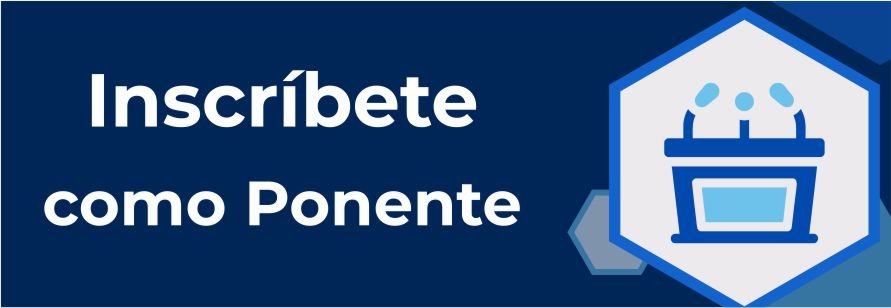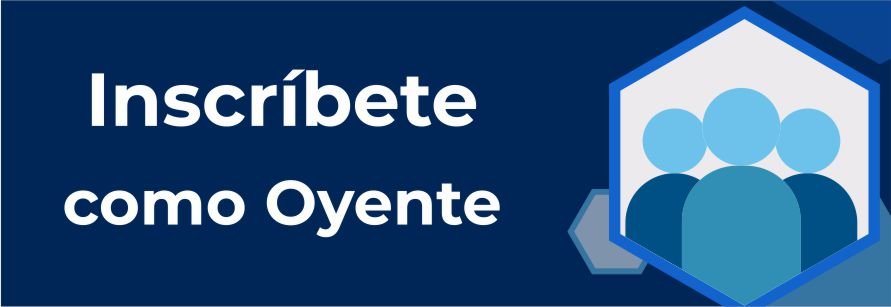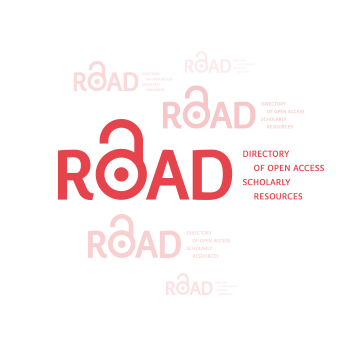De la Cadena de Bloques al Talento Humano: Innovaciones Disruptivas en Recursos Humanos
Resumen
Este artículo explora las oportunidades que la tecnología Blockchain puede ofrecer en el ámbito de los recursos humanos, desde el punto de vista de la mejora operativa y de la seguridad de los datos. Se realizó un meta-análisis de la literatura disponible en la base Scopus relacionada con el uso de blockchain en Recursos Humanos. Se revisaron estudios y casos prácticos para evaluar las aplicaciones y beneficios de esta tecnología en la gestión de personal y el impacto en las transacciones financieras. Las conclusiones indican que blockchain permite almacenar y compartir de forma segura los datos de los empleados, optimiza la gestión de los horarios de trabajo y mejora los procesos operativos, aumentando la eficiencia y la eficacia empresarial. En resumen, blockchain está demostrando ser una herramienta esencial para la transformación y modernización de las prácticas de RRHH.
Descargas
Citas
Banihashemi, S., Meskin, S., Sheikhkhoshkar, M., Mohandes, S. R., Hajirasouli, A., & LeNguyen, K. (2024). Circular economy in construction: The digital transformation perspective. Cleaner Engineering and Technology, 18, 100715. https://doi.org/10.1016/j.clet.2023.100715
Casado-Vara, R., Prieto, J., la Prieta, F. D., & Corchado, J. M. (2018). How blockchain improves the supply chain: case study alimentary supply chain. Procedia Computer Science, 134, 393–398. https://doi.org/10.1016/j.procs.2018.07.193
Chauhan, C., Parida, V., & Dhir, A. (2022). Linking circular economy and digitalisation technologies: A systematic literature review of past achievements and future promises. Technological Forecasting and Social Change, 177. https://doi.org/10.1016/j.techfore.2022.121508
Davin Arkan Admoko, Bambang Darmawan, A. Ana, & Vina Dwiyanti. (2024). A Cluster-Based Bibliometric Analysis of the Emerging Technological Landscape in Logistics using Vosviewer. Journal of Advanced Research in Applied Sciences and Engineering Technology, 42(2), 234–249. https://doi.org/10.37934/araset.42.2.234249
Duong Thi Binh, A., Akbari, M., Le Thi Cam, H., Nguyen Canh, L., & Truong Quang, H. (2024). Forging Pathways to Circular Economy Excellence: Integrating Industry 4.0 with Quality Management. Sustainability, 16(7). https://doi.org/10.3390/su16073053
Elghaish, F., Hosseini, M. R., Kocaturk, T., Arashpour, M., & Bararzadeh Ledari, M. (2023). Digitalised circular construction supply chain: An integrated BIM-Blockchain solution. Automation in Construction, 148. https://doi.org/10.1016/j.autcon.2023.104746
Hong, Z., & Xiao, K. (2024). Digital economy structuring for sustainable development: the role of blockchain and artificial intelligence in improving supply chain and reducing negative environmental impacts. Scientific Reports, 14(1). https://doi.org/10.1038/s41598-024-53760-3
Hulea, M., Miron, R., & Muresan, V. (2024). Digital Product Passport Implementation Based on Multi-Blockchain Approach with Decentralized Identifier Provider. Applied Sciences, 14(11). https://doi.org/10.3390/app14114874
Jakubowicz, I., & Yarahmadi, N. (2024). Review and Assessment of Existing and Future Techniques for Traceability with Particular Focus on Applicability to ABS Plastics. Polymers, 16(10). https://doi.org/10.3390/polym16101343
Kayikci, Y., Gozacan‐Chase, N., & Rejeb, A. (2023). Blockchain entrepreneurship roles for circular supply chain transition. Business Strategy and the Environment, 33(2), 197–222. https://doi.org/10.1002/bse.3489
Kouhizadeh, M., Sarkis, J., & Zhu, Q. (2019). At the Nexus of Blockchain Technology, the Circular Economy, and Product Deletion. Applied Sciences, 9(8). https://doi.org/10.3390/app9081712
Liu, L., Song, W., & Liu, Y. (2023). Leveraging digital capabilities toward a circular economy: Reinforcing sustainable supply chain management with Industry 4.0 technologies. Computers & Industrial Engineering, 178. https://doi.org/10.1016/j.cie.2023.109113
Nandi, S., Sarkis, J., Hervani, A. A., & Helms, M. M. (2021). Redesigning Supply Chains using Blockchain-Enabled Circular Economy and COVID-19 Experiences. Sustainable Production and Consumption, 27, 10–22. https://doi.org/10.1016/j.spc.2020.10.019
Regueiro, C., Gómez-Goiri, A., Pedrosa, N., Semertzidis, C., Iturbe, E., & Mansell, J. (2024). Blockchain-based refurbishment certification system for enhancing the circular economy. Blockchain: Research and Applications, 5(1). https://doi.org/10.1016/j.bcra.2023.100172
Rehman Khan, S. A., Yu, Z., Sarwat, S., Godil, D. I., Amin, S., & Shujaat, S. (2021). The role of block chain technology in circular economy practices to improve organizational performance. International Journal of Logistics Research and Applications, 25(4–5), 605–622. https://doi.org/10.1080/13675567.2021.1872512
Ribeiro da Silva, E., Lohmer, J., Rohla, M., & Angelis, J. (2023). Unleashing the circular economy in the electric vehicle battery supply chain: A case study on data sharing and blockchain potential. Resources, Conservation and Recycling, 193. https://doi.org/10.1016/j.resconrec.2023.106969
Rusch, M., Schöggl, J., & Baumgartner, R. J. (2022). Application of digital technologies for sustainable product management in a circular economy: A review. Business Strategy and the Environment, 32(3), 1159–1174. https://doi.org/10.1002/bse.3099
Sánchez-García, E., Martínez-Falcó, J., Marco-Lajara, B., & Manresa-Marhuenda, E. (2024). Revolutionizing the circular economy through new technologies: A new era of sustainable progress. Environmental Technology & Innovation, 33. https://doi.org/10.1016/j.eti.2023.103509
Schöggl, J., Stumpf, L., & Baumgartner, R. J. (2023). The role of interorganizational collaboration and digital technologies in the implementation of circular economy practices—Empirical evidence from manufacturing firms. Business Strategy and the Environment, 33(3), 2225–2249. https://doi.org/10.1002/bse.3593
Schöggl, J.-P., Rusch, M., Stumpf, L., & Baumgartner, R. J. (2023). Implementation of digital technologies for a circular economy and sustainability management in the manufacturing sector. Sustainable Production and Consumption, 35, 401–420. https://doi.org/10.1016/j.spc.2022.11.012
Talla, A., & McIlwaine, S. (2022). Industry 4.0 and the circular economy: using design-stage digital technology to reduce construction waste. Smart and Sustainable Built Environment, 13(1), 179–198. https://doi.org/10.1108/sasbe-03-2022-0050
Upadhyay, A., Mukhuty, S., Kumar, V., & Kazancoglu, Y. (2021). Blockchain technology and the circular economy: Implications for sustainability and social responsibility. Journal of Cleaner Production, 293. https://doi.org/10.1016/j.jclepro.2021.126130
Calderón Caiza, D. T., Vazco Silva , C. D., Aguas Diaz, C. J., López Catagña, M. P., & LLanga Cantuña, J. P. (2024). El Design Thinking Como Método Activo En El Proceso De Enseñanza -Aprendizaje. Estudios Y Perspectivas Revista Científica Y Académica , 4(2), 330–343. https://doi.org/10.61384/r.c.a.v4i2.225
Albán Pinzón , J. V. (2024). Actualizaciones en El Manejo de la Hiperuricemia en el Primer Nivel De Atención. Revista Científica De Salud Y Desarrollo Humano, 5(2), 130–153. https://doi.org/10.61368/r.s.d.h.v5i2.125
Rodríguez Palleres, X., Sagredo Carrera, N., & Lobos Cortés, A. (2024). Aplicación del idioma inglés en asignatura disciplinar de una carrera de Nutrición y Dietética Chilena. Emergentes - Revista Científica, 4(1), 65–87. https://doi.org/10.60112/erc.v4i1.95
Vargas, J. (2023). Educational Transformation: Exploring Self-Directed English Learning through Language Reactor and Netflix. Revista Veritas De Difusão Científica, 4(1), 68–95. https://doi.org/10.61616/rvdc.v4i1.38
Martínez, O., Aranda , R., Barreto , E., Fanego , J., Fernández , A., López , J., Medina , J., Meza , M., Muñoz , D., & Urbieta , J. (2024). Los tipos de discriminación laboral en las ciudades de Capiatá y San Lorenzo. Arandu UTIC, 11(1), 77–95. Recuperado a partir de https://www.uticvirtual.edu.py/revista.ojs/index.php/revistas/article/view/179
v, H., & Quispe Coca, R. A. (2024). Tecno Bio Gas. Horizonte Académico, 4(4), 17–23. Recuperado a partir de https://horizonteacademico.org/index.php/horizonte/article/view/14
Da Silva Santos , F., & López Vargas , R. (2020). Efecto del Estrés en la Función Inmune en Pacientes con Enfermedades Autoinmunes: una Revisión de Estudios Latinoamericanos. Revista Científica De Salud Y Desarrollo Humano, 1(1), 46–59. https://doi.org/10.61368/r.s.d.h.v1i1.9
Vega Alvarez, E., & Huang Chang, Y. (2024). Blended Learning, and Its Impact on English Speaking Skills in Pronunciation in Group 11-4 of Liceo de Santo Domingo, I Quarter 2024. Ciencia Y Reflexión, 3(2), 159–173. https://doi.org/10.70747/cr.v3i2.18
Chavarría Hidalgo, C. (2024). Calculation of productive capacity: From theory to practice. Ciencia Y Reflexión, 3(2), 194–214. https://doi.org/10.70747/cr.v3i2.20
Agrela Rodrigues, F. de A., Moreira da Silveira, F., Moreira de Lima, M. R., & Pinto Uchôa , K. S. (2024). Identificando a Inteligência em Crianças: Traços Físicos e Comportamentais. Ciencia Y Reflexión, 3(2), 21–51. https://doi.org/10.70747/cr.v3i2.5
Ventura, V., La Monica, M., Bortolini, M., Cutaia, L., & Mora, C. (2024). Blockchain and industrial symbiosis: a preliminary two-step framework to green circular supply chains. International Journal of Environmental Science and Technology. https://doi.org/10.1007/s13762-024-05611-x
Wilson, S., Adu-Duodu, K., Li, Y., Sham, R., Almubarak, M., Wang, Y., Solaiman, E., Perera, C., Ranjan, R., & Rana, O. (2024). Blockchain-Enabled Provenance Tracking for Sustainable Material Reuse in Construction Supply Chains. Future Internet, 16(4). https://doi.org/10.3390/fi16040135
Zhang, H., Lv, Y., Zhang, S., & Liu, Y. D. (2024). Digital Supply Chain Management. Journal of Global Information Management, 32(1), 1–20. https://doi.org/10.4018/jgim.336285
Derechos de autor 2024 Jessica Cruz Manzo , Luis Carlos Ortuño Barba, Faustino Sergio Villafuerte Palavicini, Iván Araoz Baltazar, Marifer Quintanilla Montalvo

Esta obra está bajo licencia internacional Creative Commons Reconocimiento 4.0.













.png)




















.png)
1.png)


